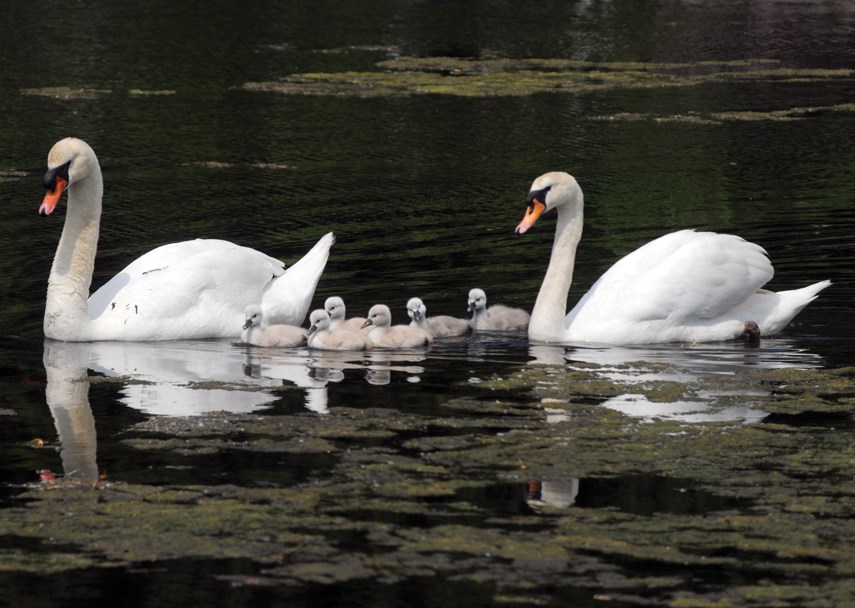They’re in the swan place at the wrong time.
Six baby swans recently hatched in Ambleside Pond but if you want to behold the ugly ducklings before they migrate to Maple Ridge you’d better act quickly, according to West Vancouver spokeswoman Donna Powers.
For the cygnets’ safety, district staff will remove the short-necked waterfowl within six weeks, according to Powers. As deadly as they are beautiful, the adult swans “would kill (the cygnets) if they couldn’t drive them off,” she said.
Highly territorial and frequently aggressive, the 40-pound swans would likely trouble the pond until only one pair remained, according to Powers.
While the district could scramble the swan eggs to prevent the cygnets from hatching, West Vancouver opted to let the birds have their swan song.
“Letting the birds breed and letting the cygnets hatch (was) . . . a decision that was made because that’s what West Van loves,” Powers said, adding that it also means: “a little bit more work.”
West Vancouver parks staff is expected to dispatch a boat and round up the cygnets in late spring or early summer.
“It’s a little bit of a chase around a little small pond,” Powers said.
Once the cygnets are safely ensconced in a basket, district staff will truck them to a bird sanctuary in Maple Ridge.
While some onlookers have complained that babies were being ripped from their parents, the roundup is necessary to prevent a pond war and to ensure the district is following federal swan guidelines. Mute swans have established territories as large as five hectares and have drowned goslings over territory. The birds are also a risk to breed with local fowl, creating hybrid-birds that threaten “the genetic integrity of native species,” according to a post from Environment Canada.
Once in the bird sanctuary, the swan’s wings are pinioned to prevent them from flying off. The birds are then adopted.
While there’s a slight amount of staff time devoted to the swans, West Vancouver taxpayers face no additional cost from dealing with the Maple Ridge sanctuary or from keeping the Ambleside icons, according to Powers.
“I think anyone who goes and experiences swans in a lagoon will be taken in by the beauty of it,” she said. “There’s a little bit of a holdover from that vision of medieval times.”
Mute swans were claimed by the King of England in the 12th century – presumably to keep commoners from boiling up what was a favourite royal banquet dish, according to a BBC report. The Queen of England still exercises ownership of swans on and around the River Thames.
Immigrants hoping to add a touch of elegance to parks and gardens imported the swans to North America in the 1870s. However, a series of escapes and releases begat a flourishing feral swan population, leading to West Coast colonies on Vancouver Island and in the Fraser River delta.



